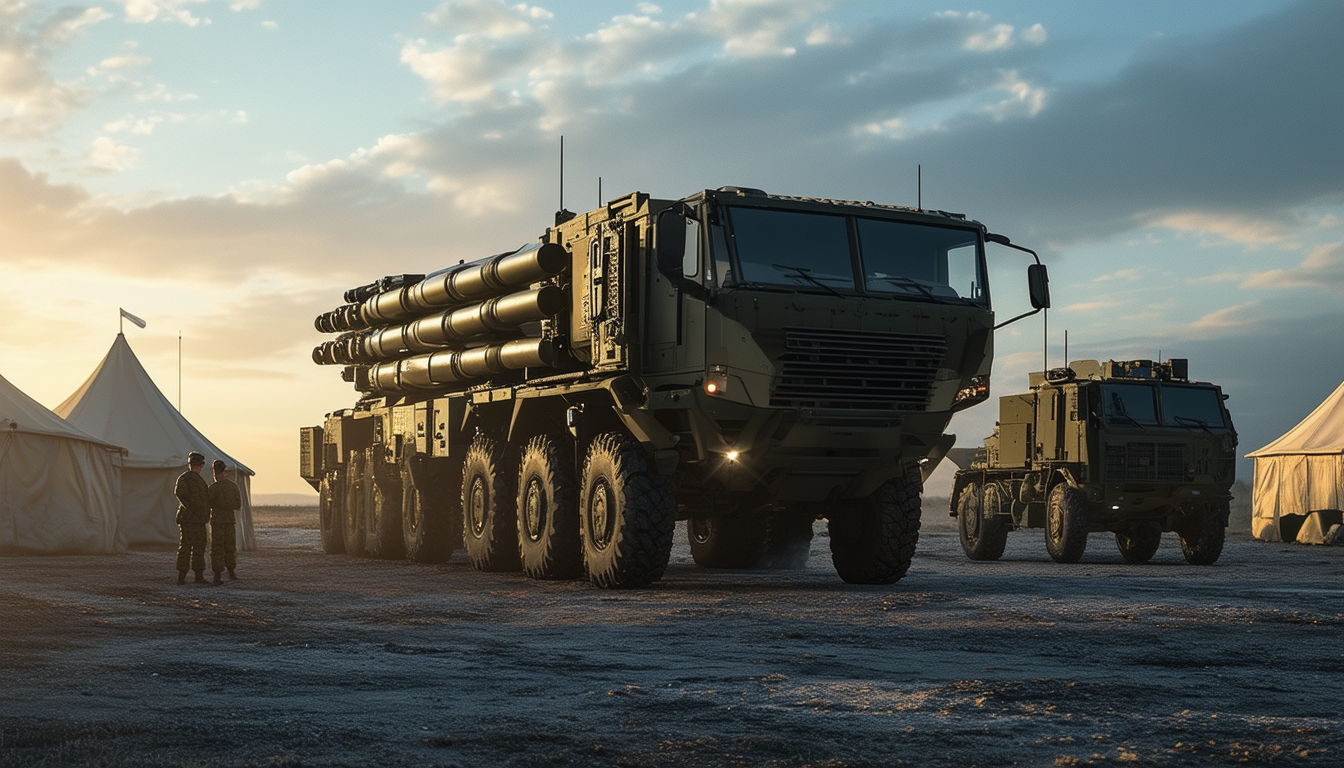Lockheed Martin sits at a strategic crossroads in Europe, where the missile problem significantly influences the deployment of its HIMARS missile systems. While several European nations, such as Poland, there Romania and theEstonia, modernize their artillery with these systems, the defense industry giant must navigate complex challenges related to accessibility and missile technology. In this context, the company is considering significant improvements on its devices in order to maintain its position in the market while meeting the requirements of the American army and European allies.

As Lockheed Martin continues to position itself as a key player in the European defense industry, the issue of missiles and weapons systems is at the heart of concerns. The deployment of HIMARS, a modern and effective rocket launcher system, faces challenges related to the range and effectiveness of its missiles. In this context, several European countries, including Poland and Romania, have decided to modernize their artillery by adopting these systems, but the compatibility and accessibility of the missiles remain critical issues.
Table des matières
ToggleThe challenges of modernizing artillery in Europe
In a world where geopolitical tensions continue to increase, the artillery modernization has become a necessity for European countries. Russia’s invasion of Ukraine acted as a catalyst, prompting nations to strengthen their military capabilities. Countries like Estonia and Greece have opted for the HIMARS system, but this transition is not without obstacles. One of the main challenges is the missile problem, because the defense ecosystem is disrupted by the strategic choices of rival countries.
Lockheed Martin and the need for technological adaptations
To remain competitive in the European market, Lockheed Martin understood that it was imperative to significantly extend the reach of its missile systems. By investing in innovation, the group seeks to convince the Pentagon and its European partners of the viability of its new solutions. This includes improving simultaneous missile launches, which has recently led to major advances, such as the ability to fly four anti-ship missiles simultaneously.
The geopolitical context and its impact on defense
As the United States deploys HIMARS in support of Ukraine, the defense strategy in Europe is under intense pressure. The challenges generated by the discrepancy between missile systems involve issues of reliability and access to technologies. A Lockheed Martin official even indicated that, if Germany were to opt for competing systems, it might not have access to the missiles developed by their company. This reality highlights the importance of cooperation and harmonization of defense systems between nations.
What solutions for the future?
Faced with these challenges, Lockheed Martin must imperatively develop adapted solutions and flexible solutions that meet the specific needs of its customers while ensuring consistent integration with existing systems. The search for new partners in Europe and closer collaboration with the US Army will be crucial to remove doubts surrounding the effectiveness and usefulness of HIMARS on the ground. Only a proactive and strategic approach will allow Lockheed Martin to consolidate its leadership position in this highly competitive sector.
Future prospects: Developing a common defense market
It is clear that the future of HIMARS deployment in Europe will depend on Lockheed Martin’s ability to navigate a complex geopolitical landscape. The creation of a common defense market could not only improve compatibility, but also solidify relations between allies. This could result in a broader and more robust supply of missile systems, which respond to global threats while ensuring the national security of European countries. The success of future projects will rely on the industry’s ability to adapt to changing market needs.
Tirs de missiles balistiques iraniens sur Israël :
— Ludovic de Foucaud (@ludovicdf) October 2, 2024
Les Gardiens de la Révolution affirment que 90% des missiles ont atteint leurs cibles.
L'armée israélienne estime que l'Iran a tiré environ 180 missiles dont la plupart a été intercepté.
On fait le point #ÀLaUneF24 #F24 pic.twitter.com/o5rO3VkV5v























